How does Inauguration Day work?
Part Constitution, part tradition

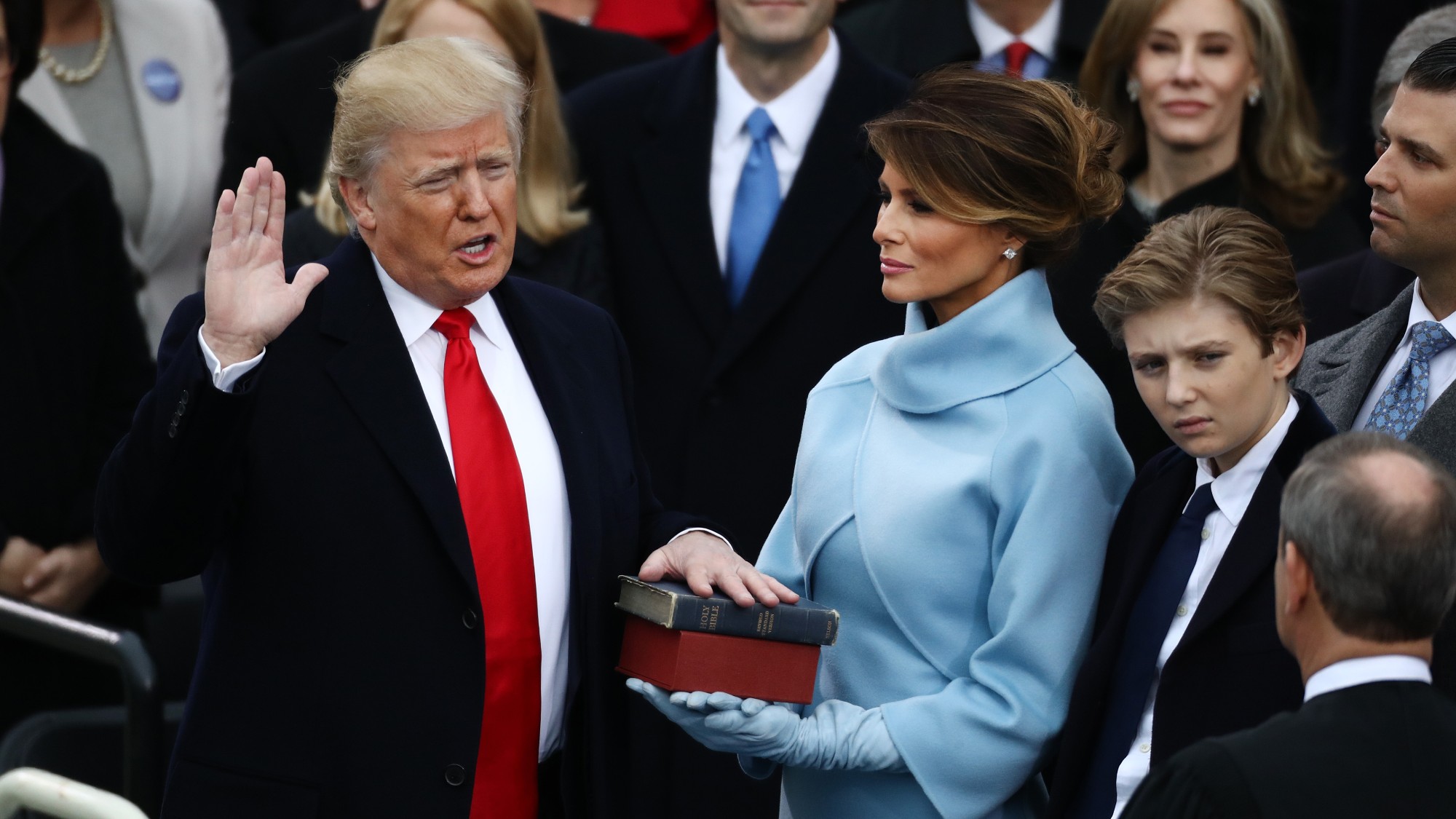
A free daily email with the biggest news stories of the day – and the best features from TheWeek.com
You are now subscribed
Your newsletter sign-up was successful
At noon on Jan. 20, Donald Trump will take the oath of office and become America's 47th president. Inauguration Day is a mix of traditions and Constitutional requirements that ensures the proper transfer of power.
There will be parties — some of them quite expensive — celebrating the inauguration. But "none of the pageantry" is required by the Constitution, said CNN. The only requirement is that the incoming president take the oath of office. (And take it precisely: Barack Obama took the oath of office a second time at the beginning of his first term in 2009 because a word got out of sequence during the first attempt.) The chief justice of the United States usually administers the oath, "but that's a custom, not a requirement," said CNN.
At the same time the new president takes power, the White House transitions from its former occupants to the next — and quickly. The process of making the building ready for a new family is "chaotic, but it's very coordinated," Matthew Costello of the White House Historical Association said to The Hill in 2021. White House staff work with presidential family members to make sure the living quarters — including "ideal room temperature, favorite snacks and preferred bath soap" — are up to snuff, right away, said The Hill. The whole process is "carried out in a matter of fewer than five hours."
The Week
Escape your echo chamber. Get the facts behind the news, plus analysis from multiple perspectives.

Sign up for The Week's Free Newsletters
From our morning news briefing to a weekly Good News Newsletter, get the best of The Week delivered directly to your inbox.
From our morning news briefing to a weekly Good News Newsletter, get the best of The Week delivered directly to your inbox.
What is the schedule?
The day usually starts with a procession to the Capitol, during which the "outgoing president typically accompanies the president-elect," said USA Today. The vice president is typically sworn in first, followed by the new president at noon. After that, the "major beats of the day" include an inaugural luncheon, a review of the troops, a presidential parade and an array of inaugural balls. But it is not all fun and celebrations: After the swearing-in, the new president does a little work to "sign nominations, memorandums, proclamations or executive orders," said USA Today.
All this pageantry costs money. The price of the swearing-in ceremony is "borne by the taxpayers," said Reuters. Everything else will be "financed by Trump's inauguration committee." The committee raised $106.7 million — a record — for his 2017 inauguration. This year? Trump has raised a reported $170 million for the big day, said The New York Times. That number could eventually reach $200 million. Any cash left after the celebrations are over will probably be "transferred to a committee for the eventual Trump presidential library," said the Times.
How will Trump's inauguration be different?
This year's inauguration brings around a rare coincidence: It takes place on the Martin Luther King Jr. federal holiday, said The Arizona Republic. That is because Jan. 20 in 2025 "just so happens to be the third Monday of January," when MLK Day is observed. (Both days are usually federal holidays, but federal workers will only get the one day off.) The last time the inauguration took place on the King holiday was 1997, when Bill Clinton was sworn in for his second term.
One other difference: Trump invited other world leaders — including Chinese leader Xi Jinping —to attend his inauguration. It is an "unorthodox move" that brings outside leaders "into a very American political tradition," said The Associated Press. It is not clear who, if anyone, will accept the invitations. Italian prime minister Giorgia Meloni "hopes to attend," said The Guardian. "If I can," she said, "I will gladly participate."
A free daily email with the biggest news stories of the day – and the best features from TheWeek.com
Joel Mathis is a writer with 30 years of newspaper and online journalism experience. His work also regularly appears in National Geographic and The Kansas City Star. His awards include best online commentary at the Online News Association and (twice) at the City and Regional Magazine Association.
-
 6 of the world’s most accessible destinations
6 of the world’s most accessible destinationsThe Week Recommends Experience all of Berlin, Singapore and Sydney
-
 How the FCC’s ‘equal time’ rule works
How the FCC’s ‘equal time’ rule worksIn the Spotlight The law is at the heart of the Colbert-CBS conflict
-
 What is the endgame in the DHS shutdown?
What is the endgame in the DHS shutdown?Today’s Big Question Democrats want to rein in ICE’s immigration crackdown
-
 Kurt Olsen: Trump’s ‘Stop the Steal’ lawyer playing a major White House role
Kurt Olsen: Trump’s ‘Stop the Steal’ lawyer playing a major White House roleIn the Spotlight Olsen reportedly has access to significant US intelligence
-
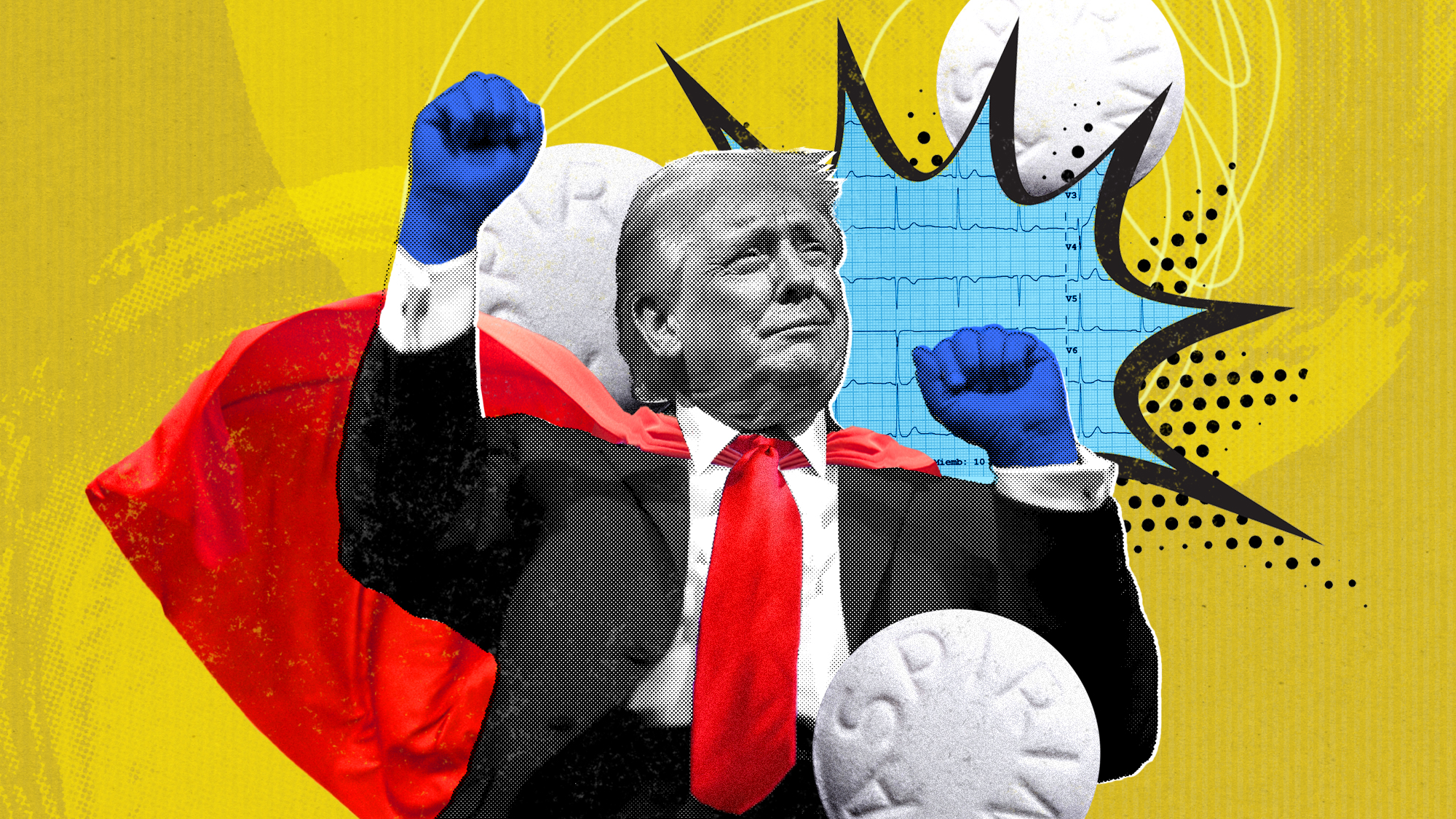 A running list of everything Donald Trump’s administration, including the president, has said about his health
A running list of everything Donald Trump’s administration, including the president, has said about his healthIn Depth Some in the White House have claimed Trump has near-superhuman abilities
-
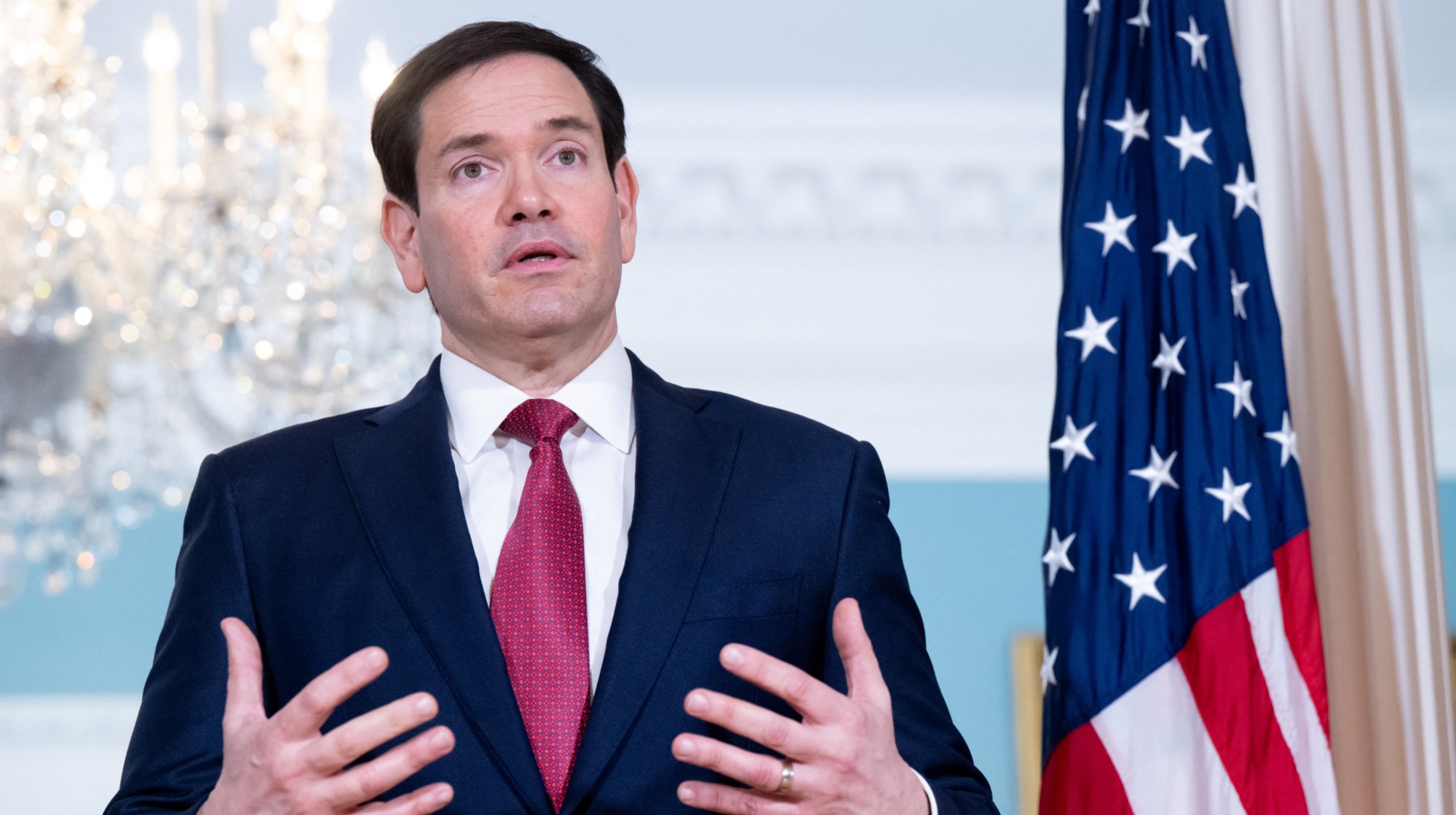 White House halts migrant visas for 75 countries
White House halts migrant visas for 75 countriesSpeed Read Brazil, Egypt, Russia, Iran and Somalia are among the nations on the list
-
 White House ends TPS protections for Somalis
White House ends TPS protections for SomalisSpeed Read The Trump administration has given these Somalis until March 17 to leave the US
-
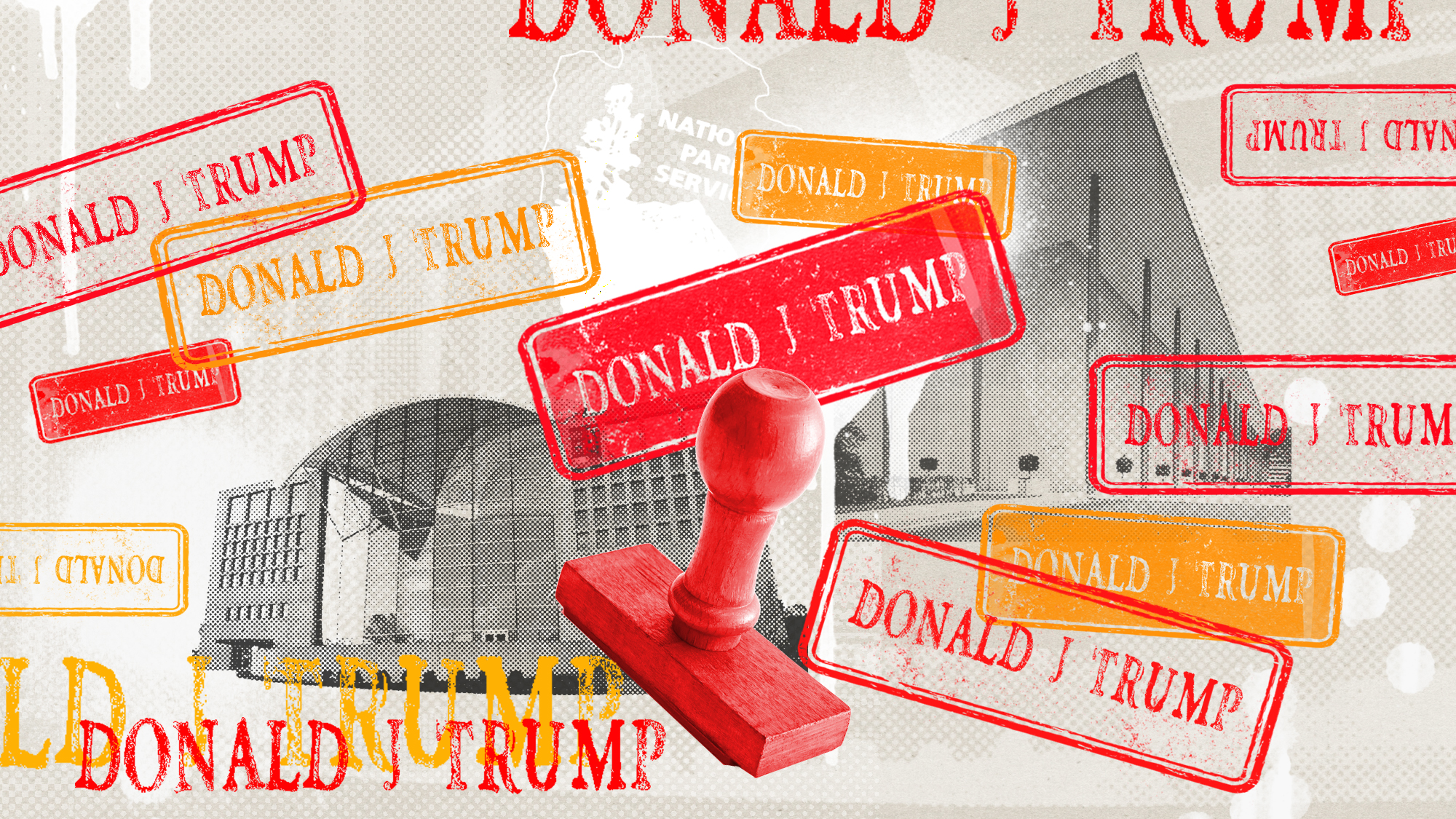 A running list of everything Trump has named or renamed after himself
A running list of everything Trump has named or renamed after himselfIn Depth The Kennedy Center is the latest thing to be slapped with Trump’s name
-
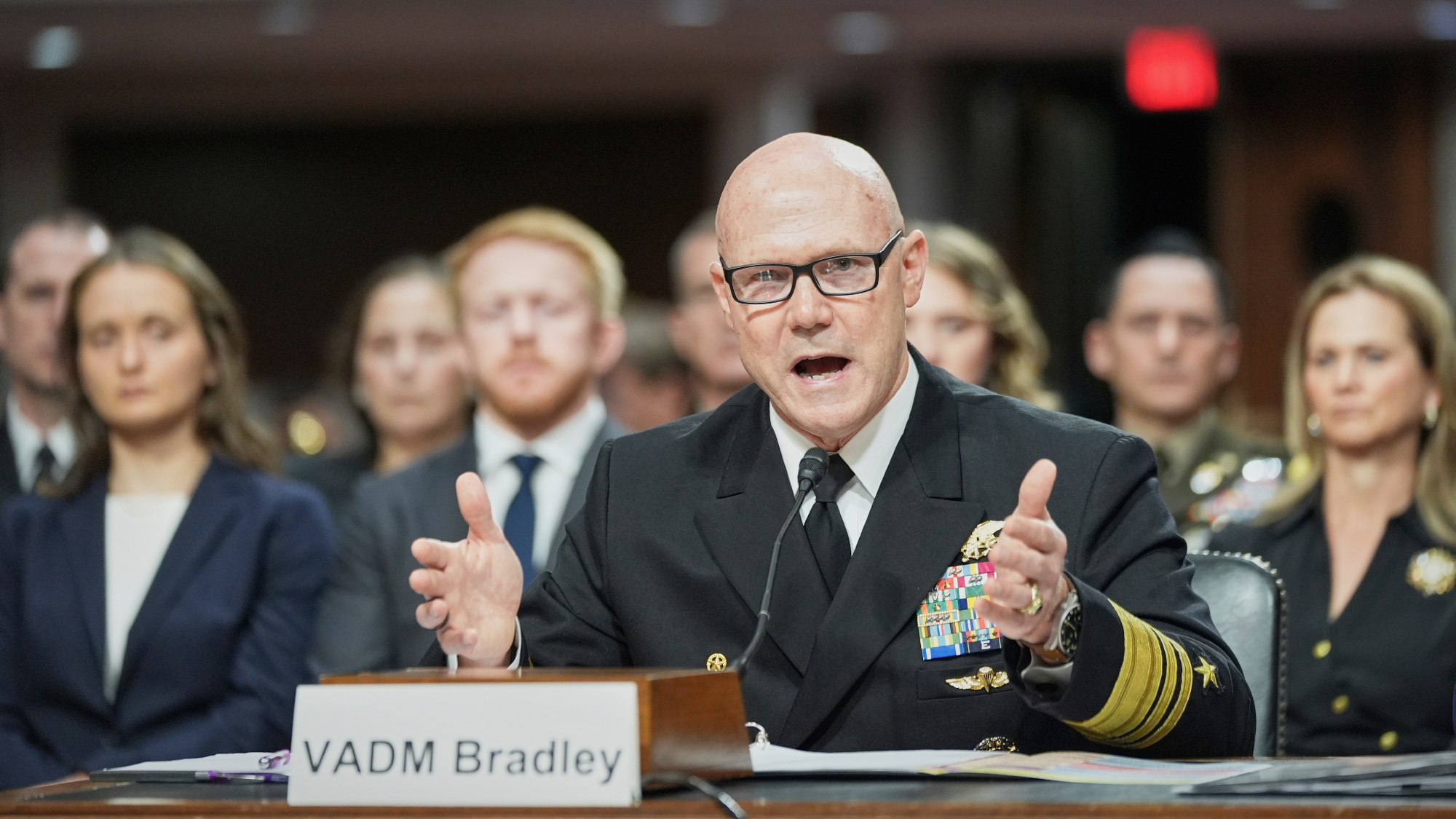 White House says admiral ordered potential war crime
White House says admiral ordered potential war crimeSpeed Read The Trump administration claims Navy Vice Adm. Frank ‘Mitch’ Bradley ordered a follow-up strike on an alleged drug-smuggling boat, not Pete Hegseth
-
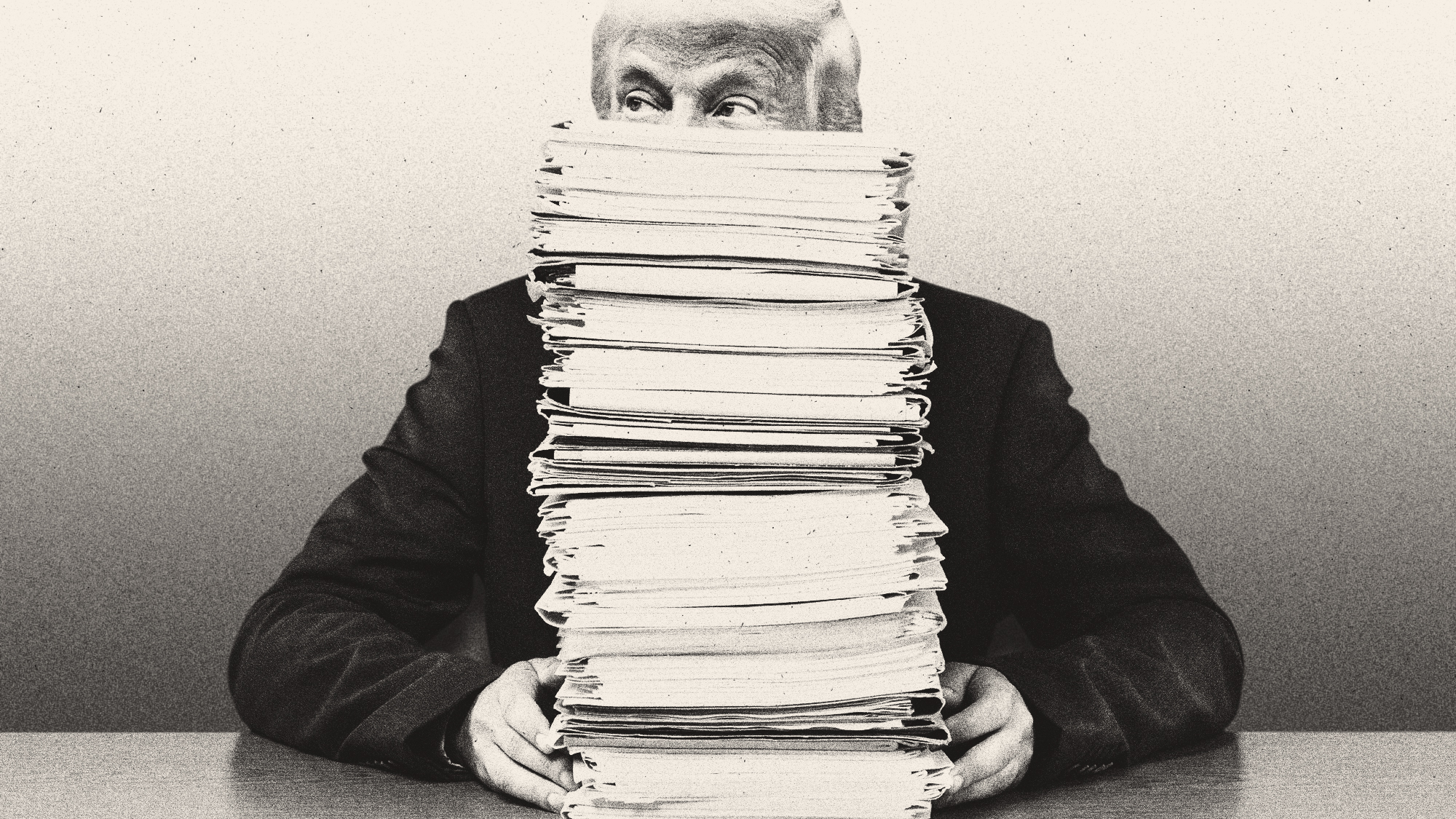 How are these Epstein files so damaging to Trump?
How are these Epstein files so damaging to Trump?TODAY'S BIG QUESTION As Republicans and Democrats release dueling tranches of Epstein-related documents, the White House finds itself caught in a mess partially of its own making
-
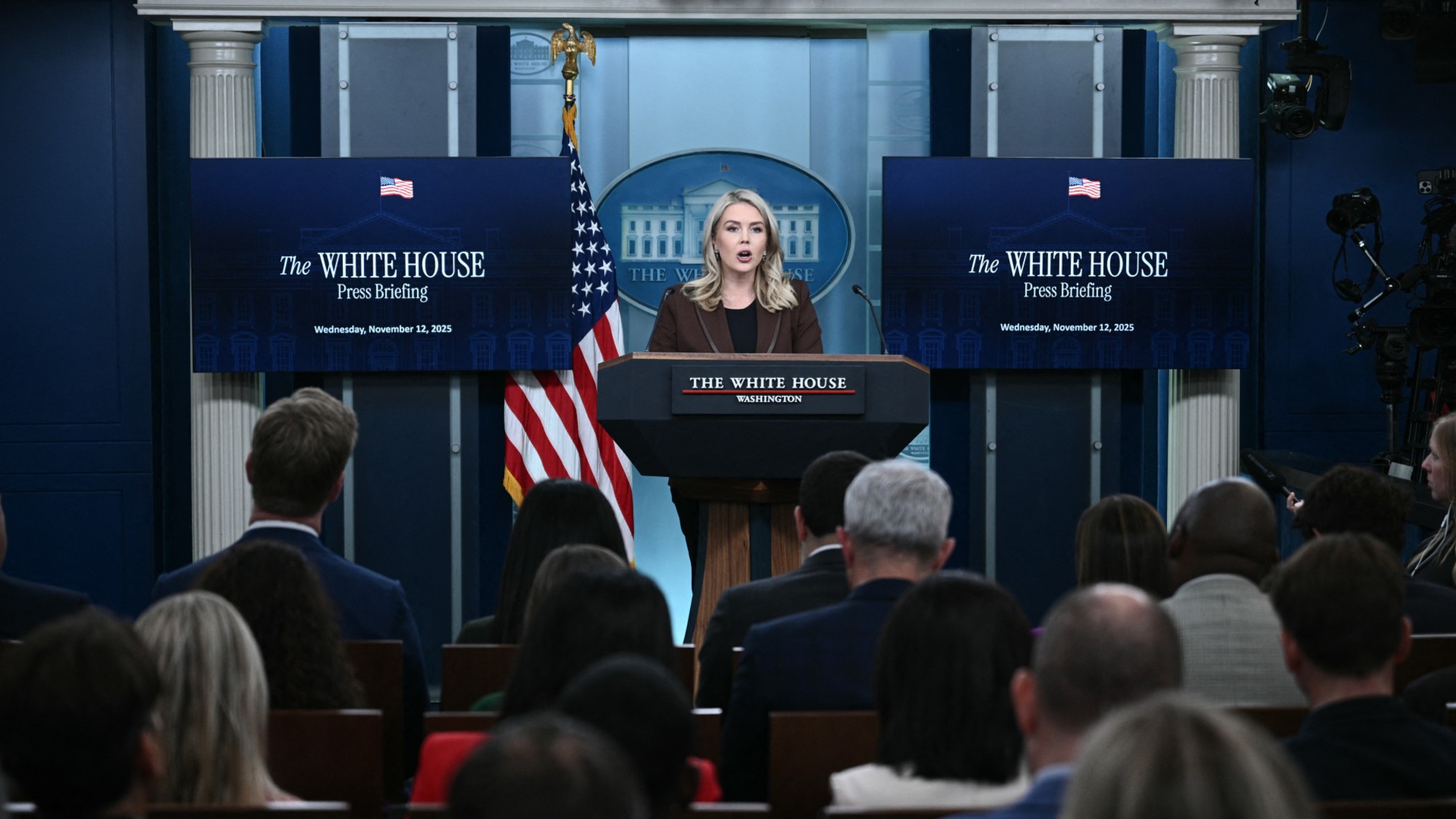 A free speech debate is raging over sign language at the White House
A free speech debate is raging over sign language at the White HouseTalking Points The administration has been accused of excluding deaf Americans from press briefings
